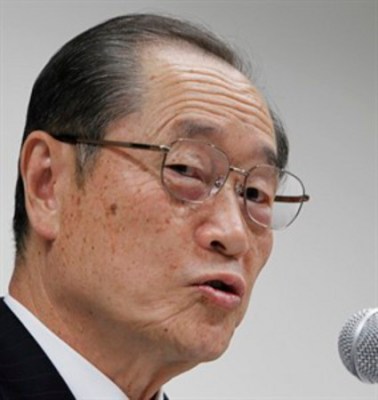Riding high from a series of mid- to high-level successes in its 2010 and 2011 camera line, Olympus execs could be excused for feeling good. However, as 2011 winds down, Olympus is not in the news for medical imaging devices or micro 4/3s lenses.
Instead, it’s in the news for a scandalous affair that threatens to sink the company and has already claimed the company’s board.
It was a cover-up, and a huge one at that, and some are calling it the the biggest corporate scandal in Japan since the 1990’s. And while the technical illegality of what went down is certainly not up for debate, the word “scandal” deserves a closer look.
After the sharp rise of the yen in 1985, then President Toshiro Shimoyama introduced what is known as the “zaiteku” (or, speculative investment) strategy to Olympus and began conducting “aggressive financial asset management,” according to an independent panel’s report. But as many of you know, the bubble economy in Japan burst in 1990, and losses began. To try and stop the bleeding, Olympus started investing in high-risk high-return products, and eventually the losses grew to JY$100 billion (US $1.2 billion) by the end of 1990.
To cover up those losses, Olympus started making acquisitions, including the 2008 purchase of Gyrus, with incredibly inflated acquisitions advisory fees, and also participated in what’s called a Loss Separation scheme, which basically keeps losses out of Olympus’ consolidated financial statements.
In October of this year the company appointed its very first non-Japanese CEO in Michael Woodford, who only spent two weeks at his post. Upon suspicion of covered-up losses, he made allegations that the company may be up to some shady business and was promptly relieved of his position. At the time reports circulated that the cover-up may also involve “yakuza,” or the Japanese mafia.
Today an independent six-person panel unrelated and unaffiliated to Olympus, the same one that first “discovered” the scandal, has released a lengthy report that finds just what was expected. Olympus was in fact covering up losses, however there is nothing thus far that links any of the shady dealings to organized crime.
That’s the story, in so many words. And when you look at the facts, it seems obvious that Olympus (specifically ex-EVP Hisashi Mori, auditor Hideo Yamada and former Olympus chair Tsuyoshi Kikukawa) was “wrong” in covering up the scandal. In almost all the ways, that’s true. A number of companies sustained horrible losses during their zaiteku phase, returned back to their core business, and regained their position as powerful, upstanding organizations.
But Forbes contributor Stephen Harner brings up an interesting point on the notion of honor within this mess.
When I think of the term corporate scandal, I imagine some fat cat running away to some Caribbean island with a lifetime of cash that doesn’t belong to him. At the very least, I imagine the same fat cat sitting on a stand before a judge and the rest of the world feigning any form of a conscience.
But Harner points out the fact that the motives of the executives involved were that of trying to save the company, not to make themselves rich. “Olympus incurred such huge losses in its zaitech transactions in years past that at almost any time, had it chosen to recognize the losses, it very likely would have been bankrupted.” He goes on to say that these final acquisitions (between 2006-2008) and their bogus advisory fees were likely the end game, and that Olympus may have succeeded in covering up the losses entirely had it not been for Michael Woodford.
It’s also speculated that other Japanese companies are hiding losses from their zaiteku transactions and that “more often than we choose to think, company managements can and do exercise judgment and discretion on loss recognition, asset valuations, and disclosures,” according to Harner.
At this point, we’re waiting to see whether or not Woodford’s call for justice will lead to any legal action against those involved. Then there’s the matter of whether or not Olympus will be delisted from the Tokyo Stock Exchange. The WSJ reports that its only chance is correcting its past financial statements by December 14, a tough deadline when you factor in getting an auditor’s signature. Even if it succeeds, there’s still a chance the company will be delisted anyways for lies already told.
Here in the States, being delisted means one of two things: the company is either doing so poorly that its entering bankruptcy territory or the company must move itself to one of the smaller exchanges, like the OTC and Pink Sheets markets. The difference there is that outside of the massive primary Stock Exchange (whether it be the NYSE or the Tokyo Stock Exchange), the regulations that make companies palatable to large investors and mutual funds no longer apply.
The company is soon considered untrustworthy.
After nearly two decades of falsified financial reports, perhaps that fate is a fitting one for Olympus.

